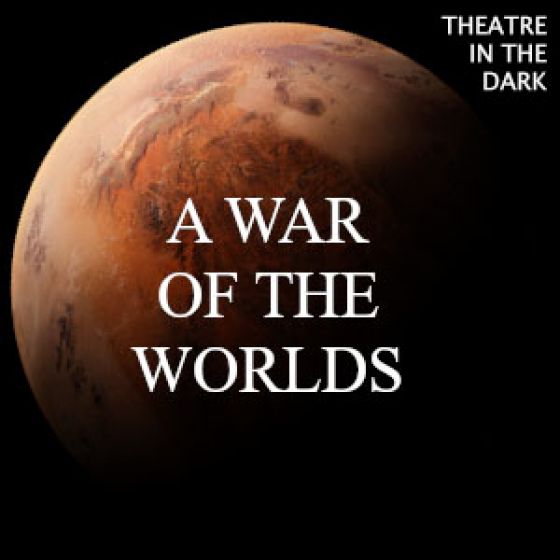
Nothing makes an imperialist nation more nervous than the prospect of payback, so the timeliness of H.G. Wells’s fictional musings on the projected conquest of his native England in 1897 is easy to dismiss nowadays. The United States is protected from large-scale aggression by its global surroundings, of course, but that didn't stop radio listeners in 1938 from reacting with alarm to a dramatic adaptation of this prototype for apocalyptic-invasion fiction. The concept behind Theatre in the Dark's credo is the unease generated by aural stimuli rendered suddenly mysterious for being perceived in a visual vacuum. After all, what dreaded apparitions can surpass in horror the "things that go bump in the night" conjured in our own imaginations? To be sure, the absence of comrades seated nearby offering comfort during this year of Social Distancing may facilitate the desired audience response, but with performers subject to those same restrictions, Mack Gordon and Corey Bradberry's transposition of their source material also mandates its reconfiguration to the demands of virtual presentation via international zoom. Yes, you heard that right. This production of A War of the Worlds begins at a pre-arranged "curtain time" with six actors, broadcasting from solitary studios as proximate as Lake View and remote as Vancouver, recounting the tale of how advanced alien technology threatened to destroy humanity, only to be defeated by the humblest of terrestrials. Their saga is documented in the notes of a science newswriter and the pictures found in his photojournalist wife's camera—images we never get to view, since our computer display now consists exclusively of our hosts reminding us that this is a play. This reduction in visual distraction mitigates the propensity of speech to trail behind sight and sound in received sensory perception, forcing us to focus on Bradberry and Gordon's concise and always-articulate transposition of Victorian-era London to next year in Chicago, while Ben Zukar's score of electronic incidental music (including a "martian alert" signal to send shivers up your spine) enhances, but never intrudes, on the progress of the narrative. On the other hand, a bare half-dozen voices representing so many characters in real time made for occasional difficulty distinguishing individual personae on opening night—and you might also want to turn the volume of your laptop up to its highest setting. Conference-call communication being still in its experimental stages, these mechanical problems should soon be resolved. Anyway, the decisive question determining playgoers' level of engagement is not so much whether our fantasies extend to hostile attacks by red-planet monsters, but how vividly we can envision a frightened populace confronting crisis by turning on their fellow citizens in a frenzy of looting, assault and murder. Now that's scary!
